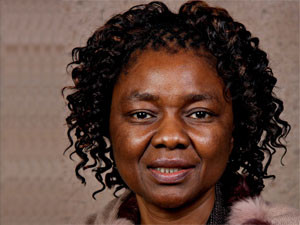
The South African government is looking to tap into big data in order to improve service delivery.
This was revealed by deputy minister of telecommunications and postal services, Hlengiwe Mkhize, at the GovTech conference in Durban yesterday.
She pointed out that this year's GovTech theme emphasises partnering for service delivery, and connecting communities for development and growth.
"We have been constantly reminded that government holds and has access to an ever-increasing wealth of data, including spatial and location data, as well as the data accumulated by citizens on a daily basis. Our premise is that data must be used to improve service delivery to our people," said Mkhize.
She believes big data allows government to design evidence-based policies and implement policies to achieve rapid outcomes.
According to Mkhize, the question of big data and its significance is featuring in all high-level meetings. During the recent high-level meeting at the UN in September, ICT was identified as one area which should be an anchor of the post-2015 agenda as the world moves towards the 2016 agenda of development, she said.
"Some of our presidents on the continent are sitting in the Broadband Commission in New York; for example, the president of Rwanda [Paul Kagame], which clearly shows the UN is now putting technology at the centre of all that it is doing."
She also referred to the work that is being done by the African Union in co-operation with the UN Economic Commission for Africa. Recently, said the deputy minister, they organised the fourth African Internet Governance Forum in Ethiopia, in which SA participated.
"We are caught in an interesting journey whereby countries with 100% broadband penetration are more concerned about how to secure the Internet. We are still at a phase where we are assessing very well who is connected and who is not connected because we are not yet at 100%. I think I will be accurate when I say a CSIR study shows that we have slightly over 50% of our areas connected throughout the country."
The president, during the State of the Nation Address, directed the Department of Telecommunications and Postal Services (DTPS) to ensure broadband rollout is targeted at rural areas so that the country can realise the dream of SA Connect, Mkhize noted.
There are other issues of making public policy clearer and firmer, as we are talking about big data, she added.
"We are in an era of unprecedented opportunities because of the digital revolution. The world's capacity to store and compute information is growing at a very fast rate. As the awareness of the benefits of information increases, there is likely to be an increase in public debate regarding the benefits and challenges associated with data management."
She believes it's now a question of analysing data and understanding it in order to be better informed as policy-makers.
"As government, we need to take this opportunity of GovTech to say we are currently in the process of developing a co-ordinated and integrated e-government strategy. We are working with all government departments on this issue. SITA [State IT Agency] will do all the work on this."
She also revealed that most departments, such as the justice cluster, have already made significant advances in terms of their e-government strategy. However, she said some of these advances have not been communicated but "we have been overwhelmed by the progress that they have made".
When it comes to the Department of Education, she said, the president announced Operation Phakisa, which gives huge opportunities of accumulating data for educational purposes in SA.
Within the same e-government strategy, e-health is also looking at the amount of data it can accumulate, manage and aggregate for different purposes, Mkhize pointed out.
"E-commerce is also another area. According to a PwC report, consumer spending and Internet access in SA will reach about R59.6 billion by 2017, up from R19.8 billion in 2012. So, given the widespread use of digital technologies, policy-making now takes place in an increasingly rich data environment which is a good opportunity."
As the DTPS finalised the National Integrated ICT Policy whitepaper for approval by the end of this financial year, the department will present a framework and associated policy amendments to improve personal data protection and other related principles adopted by the GovTech 2015 participants, she added.
"This would entail aligning the Electronic Communications and Transactions Act provisions on privacy and data protection implications for regulation and legislation. We also need to look in to the ability of big data analytics to provide insights."
However, big data technologies alone are not a silver bullet for transforming the public sector in improving service delivery.
"We have to continue in improving and developing capacities even at post-school level. SA has a shortage of data analytics and we need to look at ways to increase this skills base in SA."
Share